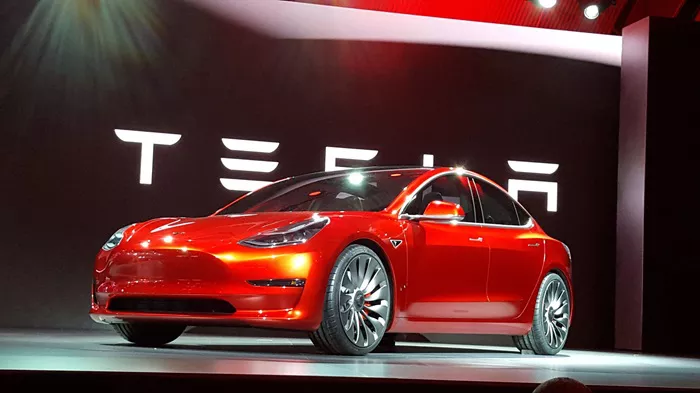Tesla (TSLA) shares plummeted more than 7% on Friday afternoon as investor disappointment settled in following the company’s much-anticipated robotaxi unveiling.
The event, titled “We, Robot,” took place Thursday night with the aim of solidifying CEO Elon Musk’s status as a leader in artificial intelligence. However, analysts and investors left the event feeling more skepticism than enthusiasm regarding Tesla’s ambitious plans for a future of driverless taxis.
In a note to investors, analysts at Jefferies (JEF) described Tesla’s $30,000 robotaxi, dubbed the Cybercab, as a “toothless taxi,” emphasizing that while the targets are ambitious, there is “little evidence of feasibility.” They expressed concern that Tesla may not fully appreciate the challenges associated with scaling a robotaxi fleet.
The new Cybercab is designed to be fully autonomous, featuring no steering wheel or pedals. According to Yahoo Finance’s Pras Subramanian, Tesla plans to initiate unsupervised full self-driving (FSD) trials with Model 3 and Model Y vehicles next year in Texas and California. Musk stated that production of the Cybercab is expected to begin “before 2027.”
Friday’s stock decline extended a two-week downward trend for Tesla. The shares had already dropped last week after the company fell short of Wall Street’s expectations for third-quarter deliveries, issued a recall, and discontinued a lower-priced model. Despite the recent volatility—TSLA shares are down 17% from last year—Friday’s closing price of $220 per share remains significantly higher than the lows below $140 seen this spring, which marked a 15-month low amid layoffs and price reductions.
Investors and analysts had anticipated that the robotaxi event would meet the high expectations set by prior communications, but many were left disappointed by Musk’s lack of specific details on how the company plans to achieve its ambitious objectives.
Raymond James (RJF) analyst Josh Beck characterized Tesla’s strategy to commercialize its Cybercabs as “vague” and “underwhelming.” Similarly, analysts from Morgan Stanley (MS) criticized the event for its “disappointing lack of detail” regarding updates to Tesla’s FSD technology and overall market strategy.
RBC Capital analyst Tom Narayan echoed these sentiments, noting that investors felt Musk’s presentation was “light on real numbers and timelines.” He pointed out that Tesla events typically provide concrete figures, but this one seemed more focused on branding and marketing than offering tangible data for analysis.
Furthermore, Tesla did not disclose information about a lower-priced vehicle, which some investors had hoped to learn more about. Analysts expect this model to launch in the first half of 2025.
Related topics:


